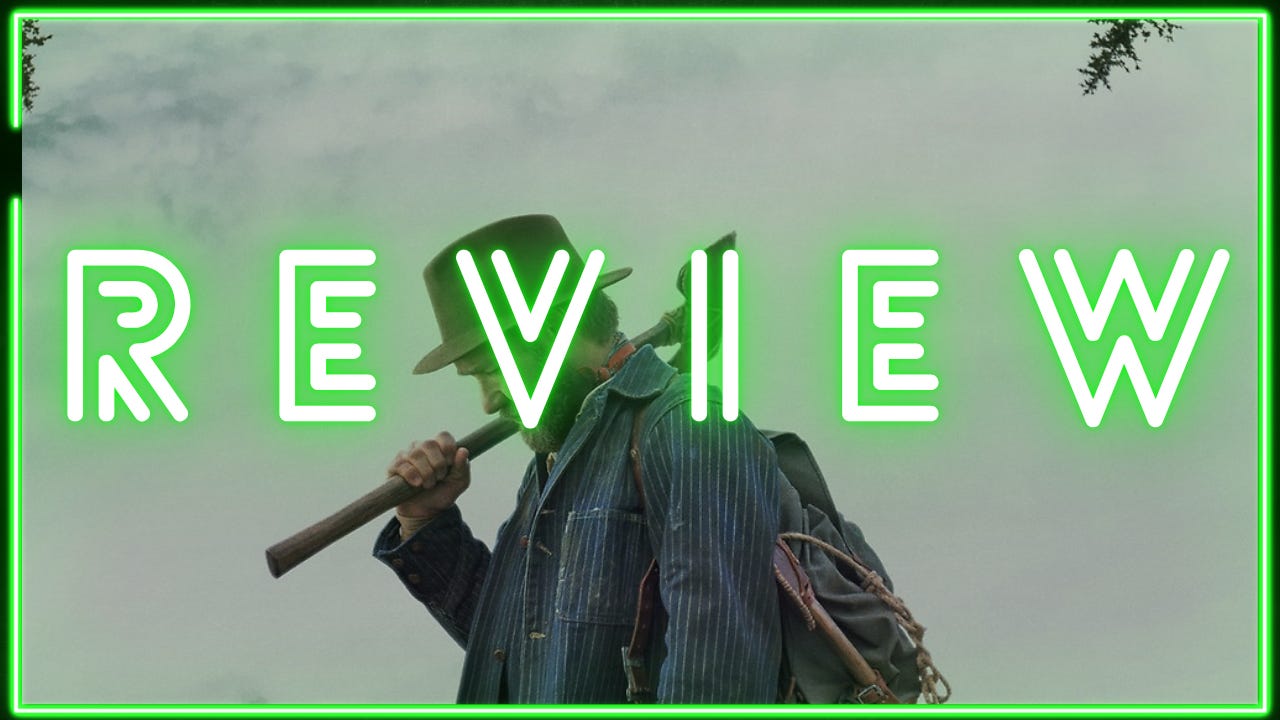Film Review: Train Dreams
A New Film From The Same Duo Behind 'Sing Sing'
INTRODUCTION
This is a quick review of the newly released film Train Dreams. Please note that this is just one of the many movies I will have watched each year, and my initial grade for this film may change over time, for better or worse. To stay up to date on my thoughts about other movies and any potential changes in my opinion on this one, follow me on Letterboxd.
If you enjoy these reviews, I’d greatly appreciate it if you could share this newsletter with family and friends who might love receiving film reviews, classic movie lists, and Oscars projections straight to their inbox.
PLOT
Via Letterboxd: A logger leads a life of quiet grace as he experiences love and loss during an era of monumental change in early twentieth-century America.
REVIEW
Earlier this year I watched and reviewed The Life of Chuck, an introspective film about…well…life. That movie, adapted from a Stephen King novella, used a narrator to weave its storyline together. It moved me enough that I initially graded it an A-. If you’ve kept up with my Letterboxd, you’ll know I’m a little less high on it now thanks to its rough first act not aging well, but that doesn’t take away from how strongly it affected me through its storytelling devices. I honestly didn’t know when I’d come across another film like that again, turns out I didn’t have to wait long.
Enter Train Dreams, from the same acting/directing duo behind one of my favorites from last year, Sing Sing, and also an adaptation of a novella, this time by Denis Johnson. Like The Life of Chuck, it uses a narrator to thread scenes and exposition together in a way that made me feel like I was reading the story rather than watching it. It’s a choice that might actually elevate this film even more, especially with Will Patton delivering the narration, a voice I’m used to hearing read me Stephen King stories on Audible.
But what truly sets this film apart is its cinematography, which ranks among the most gorgeous I’ve ever seen in my life as a movie watcher. And our protagonist is played by Joel Edgerton, giving what might be one of the best reserved performances of the year. As Robert Grainer, he disappears so fully into the character that I kept forgetting it was Edgerton at all. It felt less like watching an actor on a Netflix screener and more like witnessing a man’s actual life unfold before me.
The story spans decades, yet the pacing never feels rushed. Shocking and violent events occur, as do moments of beauty and quiet, and yet the film barely runs longer than ninety minutes without credits. It gets in and out efficiently, but you still feel as though you’ve watched an entire life pass before you, almost a fleeting reminder of how quickly life can slip by.
The film carries an intense and powerful aura, as if it’s delivering some profound life-affirming message. And yet I’m not sure it ever explicitly gives one, which might be to its credit; it never force-feeds you anything.
Ultimately, this is arthouse life-introspection cinema, a slice-of-life “vibes” movie, and you’re either on its wavelength or you’re not. But I suspect many will be surprised by just how attuned they’ll be to its rhythms. It’s an experience as much as it is a film, hard to articulate until you see it for yourself.
I’ve been debating what grade to give it because I think I still need time to digest it, yet I also haven’t been able to stop thinking about it, even while watching something grander and more spectacular in scopre like Wicked: For Good. I don’t know if it will fade for me the way The Life of Chuck eventually did, but I do know it moved me even more, and that film made me cry. So for now, tentatively, I’m giving it an A-.
“TL;DR”
Pros: One of the most gorgeous looking films I’ve ever seen; Beautiful writing; Narration really brings movie together to feel even more introspective
Cons: This is the definition of introspective art-house cinema, which won’t be everyone’s cup of tea
GRADING




